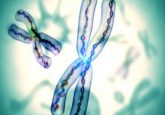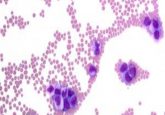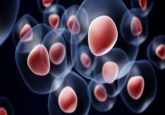Newly developed compound ‘new paradigm’ in acute myeloid leukemia treatment?
An American research team based at the University of Virginia School of Medicine (VA, USA) have successfully produced a compound that can trigger selective cell death in human tissue samples and delay leukemia progression in mice. The research, which has recently been published in Science, has been dubbed a ‘new paradigm’ in leukemia treatment by its developers.
The compound, a protein–protein interaction inhibitor, functions by blocking an altered cellular protein that drives one type of acute myeloid leukemia. This triggers selective cell death within the cancerous cell, preventing continued growth and spread.
“This drug that we’ve developed is … targeting a class of proteins that hasn’t been targeted for drug development very much in the past. It’s really a new paradigm, a new approach to try to treat these diseases,” recounted John Bushweller (University of Virginia). “This class of proteins is very important for determining how much of many other proteins are made, so it’s a unique way of changing the way the cell behaves.”
According to authors, one of the compounds’ more notable advantages is its specificity, targeting cancerous and not healthy cells. Bushweller explained: “It’s not a killer of many other types of cells. As far as we can tell, it only really kills the leukemia cells that have this particular altered protein in them.” The team therefore believe that a significant challenge in the effort to develop a new treatment has been overcome.
Bushweller further explained that this specificity means the compound does not result in the toxicity and side effects associated with traditional chemotherapy drugs used in the treatment of acute myeloid leukemia. “When you target a mutated protein in a cancer, you would ideally like to inhibit that mutated form of the protein but not affect the normal form of the protein that’s still there,” he said. “In the case of this drug, we’ve achieved that. We have an inhibitor that turns off the mutated form of the protein but does not affect the so-called wild-type, or normal, form of the protein.”
Following the successful use of the compound in mouse models and human patient samples, the team are looking to develop the drug even further in order to move towards testing in humans.





